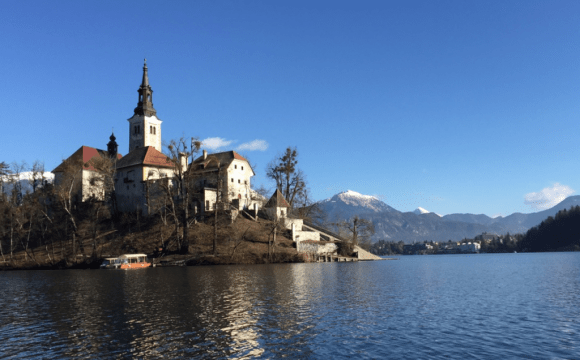by Pádraic Gilligan, Managing Partner, SoolNua
Changes
Recent posts on this site have highlighted the seismic changes across the Meetings and Events Industry with reference to the agency or intermediary sector and, particularly, Destination Management Companies (DMCs). However, the Destination Marketing sector has also been subjected to the “slings and arrows of outrageous fortune”, under-going several identity crises, resulting in name changes and the unleashing on an already overburdened industry of more dreaded acronyms!

It’s been happening for a while, I suppose, starting with the International Association of Convention & Visitor Bureaus (sic) (IACVB) which become the Destination Marketing Association International (DMAI) in 2005. Likewise European Cities Tourism and the European Federation of Convention Cities merged to create European Cities Marketing (thanks for the steer, Sam!), bringing together leisure and business tourism under the aegis of a single organisation. We’re now looking at further changes as the term “Destination Marketing Organisation” (DMO) is proving to be unfit for purpose and risks being changed to the rather awkward Destination Development, Management and Marketing Organisation (DDMMO). But why is this happening?

There are many reasons but this is happening, primarily, because we need more protection – bigger shields – to help us hide from the “slings and arrows” that change visits upon us in ever greater frequency and ever more random measures. We require a much broader and deeper coalition of destination partnerships to maintain the visibility of our destination as a great place to live, work, study and visit.
While the motivation to change our identity and alter our name might be reactive rather than proactive, the fact that it’s changing is definitely a good thing as it’s forcing us into a scenario where previously fragmented jigsaw pieces start joining together to form a compelling big picture.
ECM sets out its vision for the Future of DMOs
In this regard there’s lots to love in the recently launched The Future of DMOs – The ECM Manifest. Produced by European Cities Marketing (ECM) in collaboration with Toposophy, a full service, integrated destination marketing and management agency, this White Paper lays out 8 principles around which, it recommends, Destination Marketing Organisations should stake their future.

The over-riding leit motiv of the White Paper is the radical switch from external to internal, from outbound to inbound, from focus on visitors to focus on citizens. It’s the key message that nation brand expert Simon Anholt has been beating on about for years. If, in the past, destination marketing was about crafting messages to attract tourists, now it’s a much more complex pursuit that needs to start with citizens – local residents – and create and generate a quality of life experience for them. The White Paper couldn’t be clearer about this principle, advocating that DMO’s disregard what tourist think:
Light the campfire and become the organisation that others come to in the quest to assemble all the essential elements to a good quality of life. Start by improving life at street level and set in motion a cycle of attraction: of talent, creativity, business investment and long term prosperity.
The point here is that external entities such as Foreign Direct Investment (FDI), talent and tourists – especially within the Business Events sector – are attracted to destinations these days not by photo opportunities, monuments and visitor attractions but by the authenticity of the available local experiences:
In communicating who you are to the outside world, what matters most is how local people live and what they think makes their city unique …
From DMO to DDMMO
The switch from external to internal also triggers the expansion of the role of the traditional DMO. No longer is it sufficient to “market” the destination, you also need to play a role in developing and managing it – enter the Destination Development, Management and Marketing Organisation!
An extended horizon that includes destination development and management necessitates greater levels of alignment and partnership with other public and private enterprises within the destination.
The partnership approach, too, is highlighted in the White Paper:
Today, the most forward-thinking DDMMOs are re-inventing themselves primarily through building deep and meaningful partnerships. Whether it’s through teaming up with a local university to analyse data, rolling out a major campaign with an online travel agent, or building a political taskforce to tackle a specific issue, partnerships are essential for helping you get where you want to be.
Essentially, DMOs need to break the silos, forsake the ivory towers and “think way beyond the tourism sector” and “consider their own policy goals and those of other related government agencies … see the partnerships as the tool to achieving those goals”.

Leaders in Destination Marketing
To achieve this broad alignment and build a strong coalition of the willing, DMOs can learn a lot from the Business Events | MICE sector which, in destinations like Australia and Canada, has been building out its value proposition beyond mere bricks and mortar infrastructure over the past couple of years.
The Intellectual Capitals initiative, in particular, proposes a new and robust model for Business Events | MICE that focus on destinations as knowledge hubs, not mere locations with large convention centres and big box hotels. The marketing framework here is based on highlighting a destination’s expertise and experience in a particular field of human endeavour like life sciences, pharma, sustainable living and energy, the world of high-tech, clean-tech, logistics, financial service and others.

This “knowledge” then becomes the USP for the destination, the differentiation factor that sets it apart from other cities or regions. So it’s not a question of “my convention centre is bigger than yours” or “we have high speed connectivity between our airport and downtown” (important as these undoubtedly are) but the benefits brought to the event by the research conducted at the city university or the legacy the city has in high tech or the expertise the municipal hospital has in micro-surgery.
ECM is to be congratulated for producing a compelling vision document that truly sets out a future scenario.
Pádraic Gilligan, Patrick M. Delaney and Aoife McCrum run SoolNua, a specialist agency working with destinations, hotels, venues and agencies on strategy, marketing and training for the Business Events | MICE sector.


2 thoughts on “DMO or DDMMO – What’s next for Destination Marketing Organisations?”
Really enjoyed this valuable piece, Padraic! Go raibh míle maith agat agus slán go fóill, Pádraig
Thanks Padraig! Appreciate the time you take to read as always.